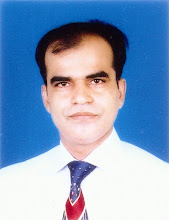Ajit Bhattacharjea has been writing on Jammu and Kashmir ever since he went there in 1947 to report the invasion of Pathans sent in by Pakistan.
In his 80s, Bhattacharjea has completed a biography of Sheikh Abdullah to complement his previous book ‘Kashmir: The Wounded Valley’.
Humra Quraishi talks to Bhattacharjea:
How has Kashmir changed?
I went to Srinagar the first time in 1947, soon after our troops landed there. I saw how Kashmiris helped to resist the invasion by Pathan tribals sent in by Pakistan.
The same Kashmiris are now crying for azadi from India. When I was there last year, temples were open in the heart of Srinagar and people were visiting them.
There were so many publications about the culture and history of the Valley and there were tourists. There was hope. There’s little hope left today as the situation amounts to a form of occupation because of our repressive law and order approach.
How did the situation deteriorate?
Sheikh Abdullah and Jawaharlal Nehru believed in secularism and in socialism. Kashmiris were with India and rejected Pakistan because for them it didn’t stand for either socialism or secularism. Over the years Hindutva outfits have exerted their influence over the government of India. With that several factors came up.
The assurances given to Sheikh Abdullah were taken away, the special autonomy promised to J&K was gradually eroded.
There’s a sense of alienation among Kashmiris. That sense of alienation had always been there but today it has increased. Blocking the highway and connecting roads to the Valley was a disaster.
It made Kashmiris feel that they are not part of the country. And now, this news of curfew being imposed in the entire Valley.
The way forward is to invite all concerned for discussions on specific, time-bound measures to revive the autonomy J&K had enjoyed when it joined the Indian Union.
What kind of political solution do you think will be acceptable in the Valley?
People tend to forget that Jammu and Kashmir cannot be treated like any other state. It acceded to India on October 27, 1947, on the condition of being given internal autonomy.
Though Muslims were in a majority, they supported accession and helped Indian troops resist Pakistan. But gradual erosion of the state’s autonomy planted the seeds of alienation. Azadi became a popular slogan, that could mean independence or full autonomy.
I do not see any prospect of early resumption of talks on autonomy after this heavy dose of repression. Prospects had improved after General Musharraf made his out-of-the-box proposals to increase cooperation between the two halves of Kashmir.
But he, too, is gone. Even so, if the Centre offers talks on restoring the level of autonomy originally enjoyed by the state, a new beginning can perhaps be made. But it must seem to be sincere.






